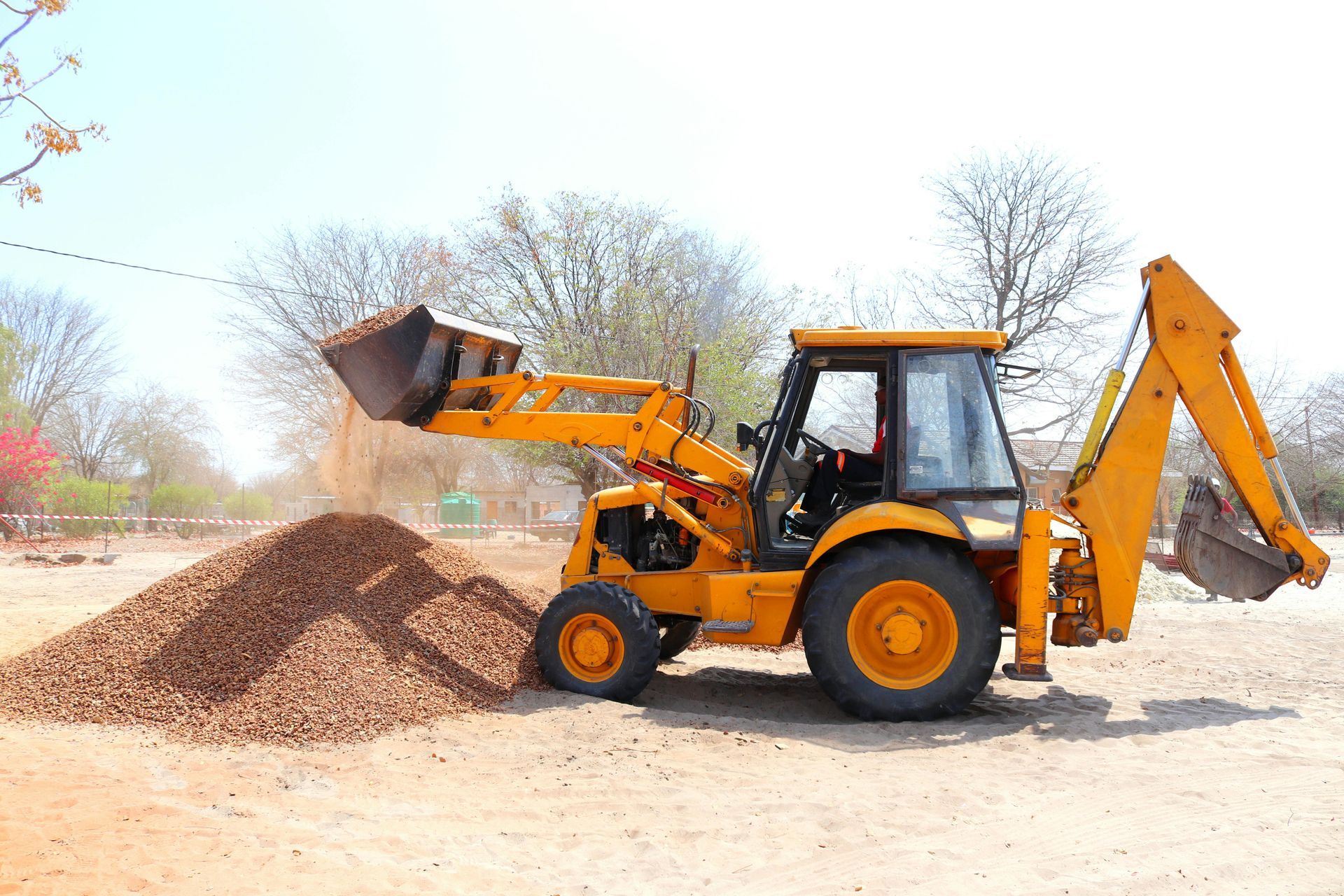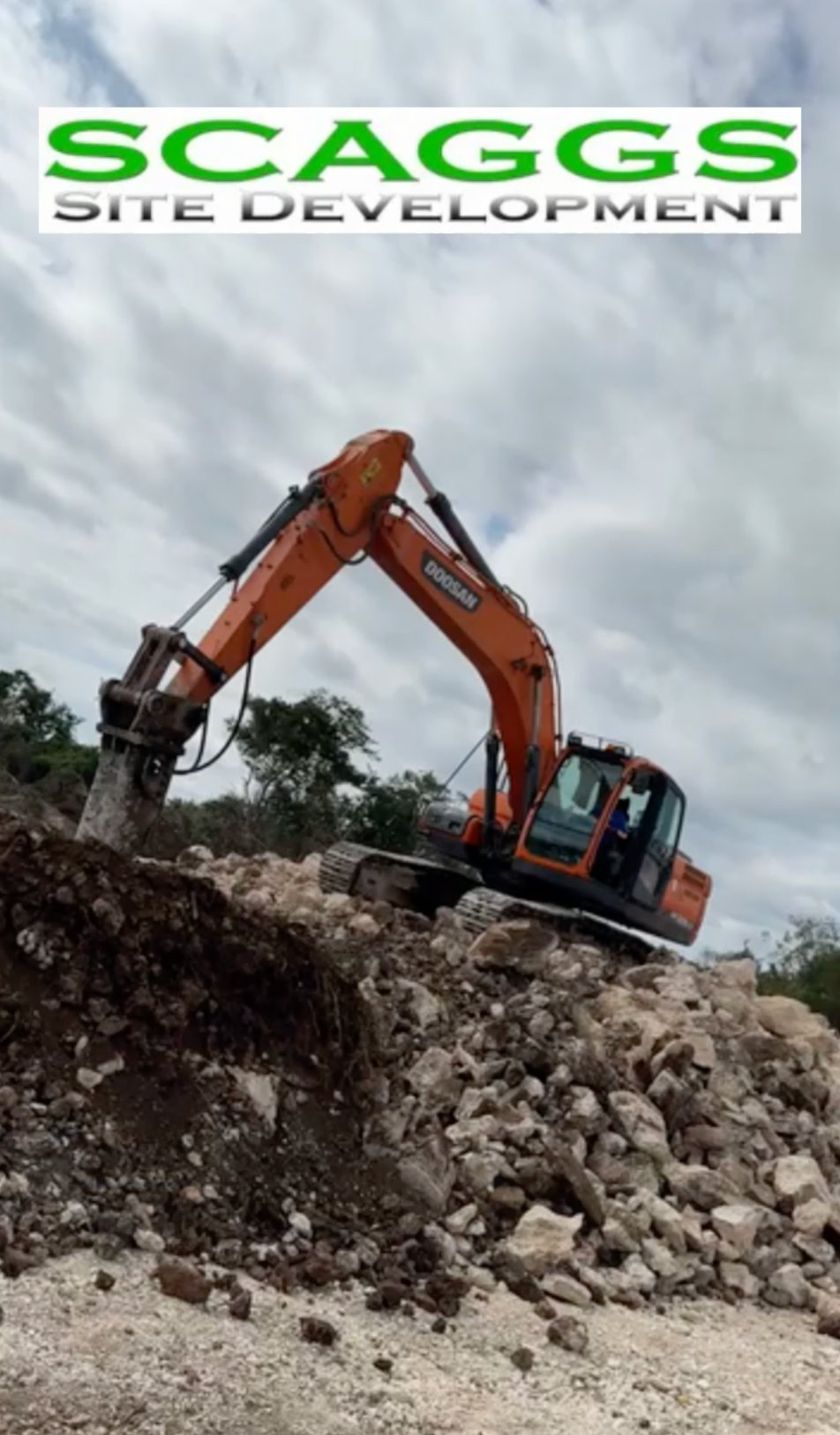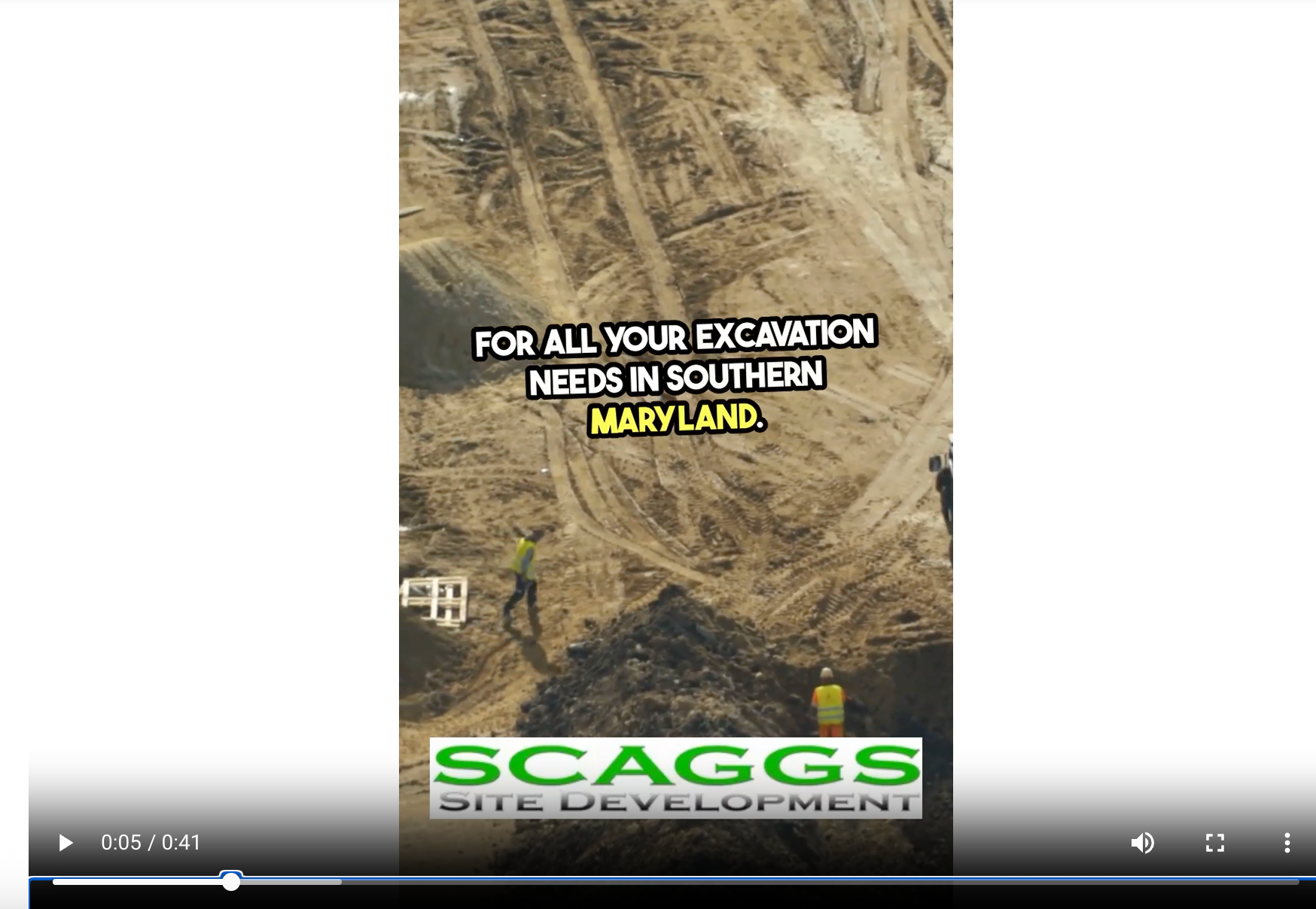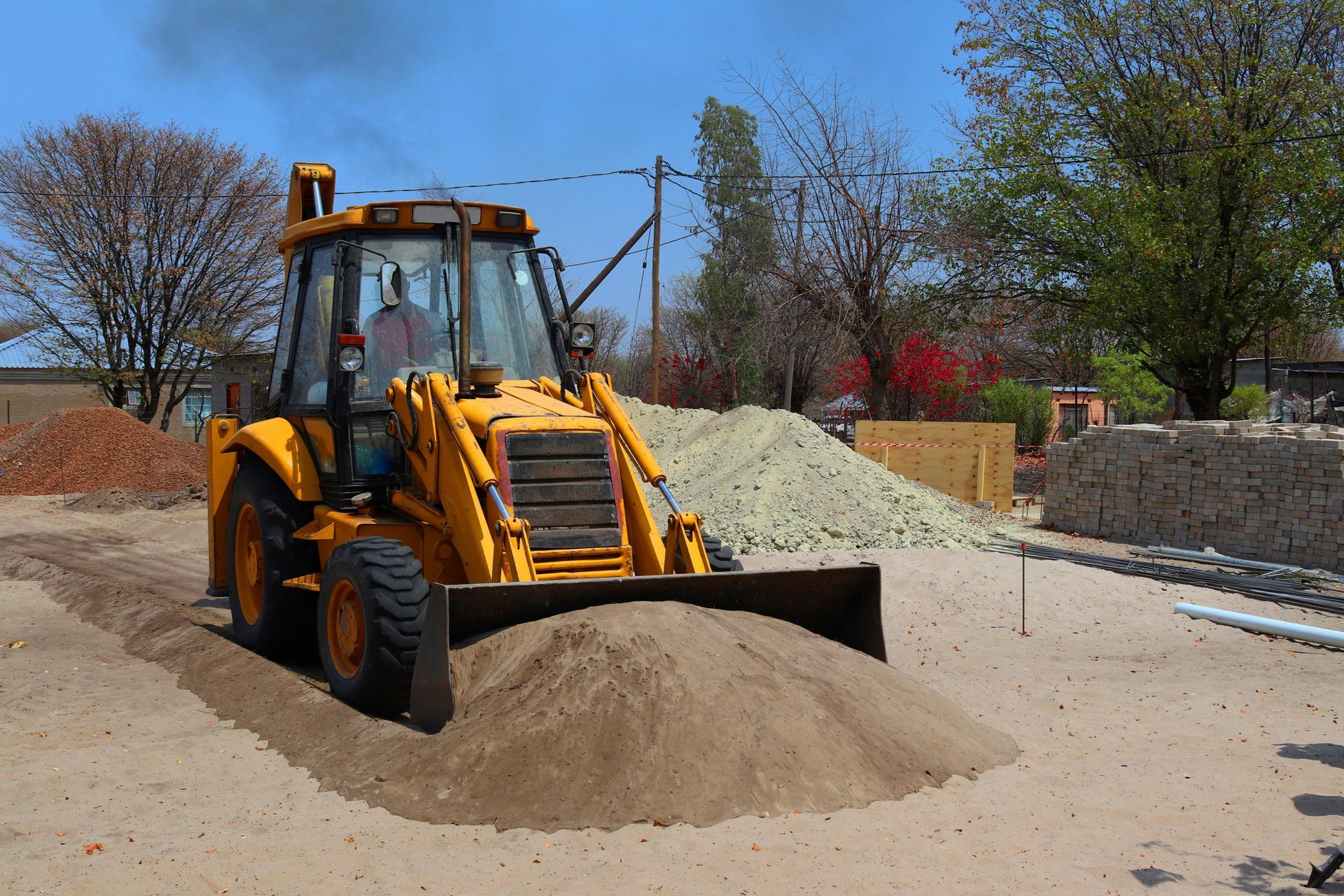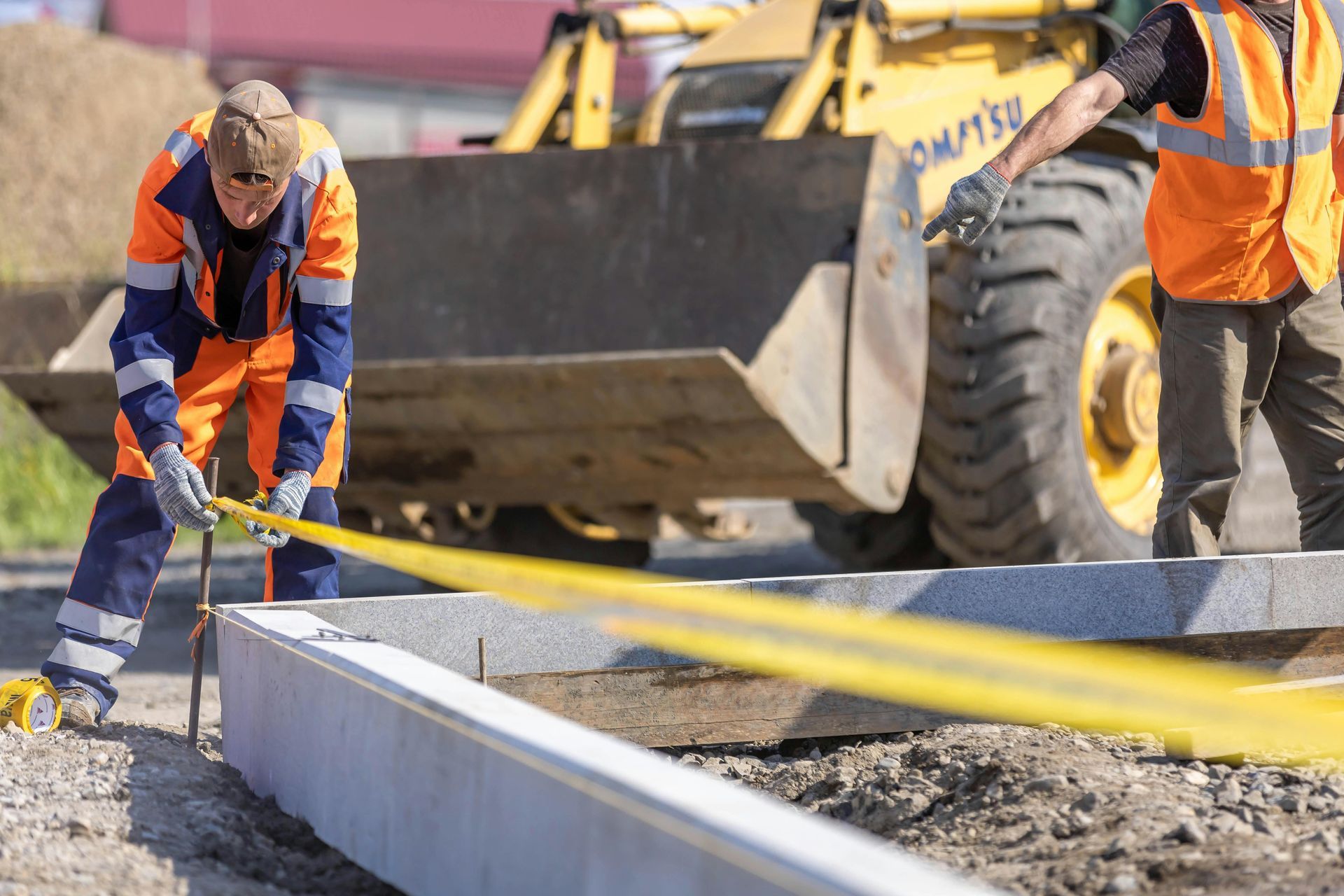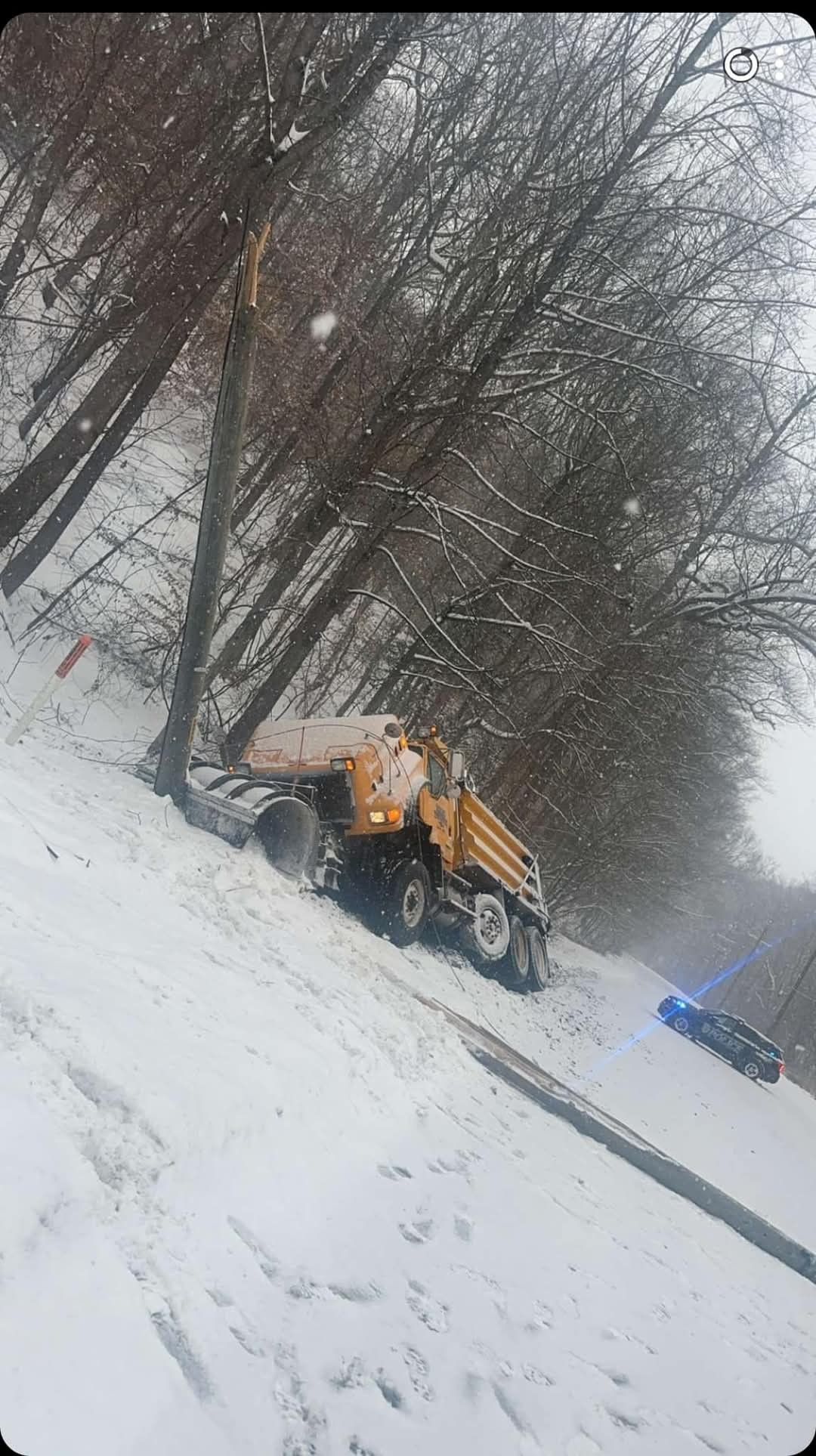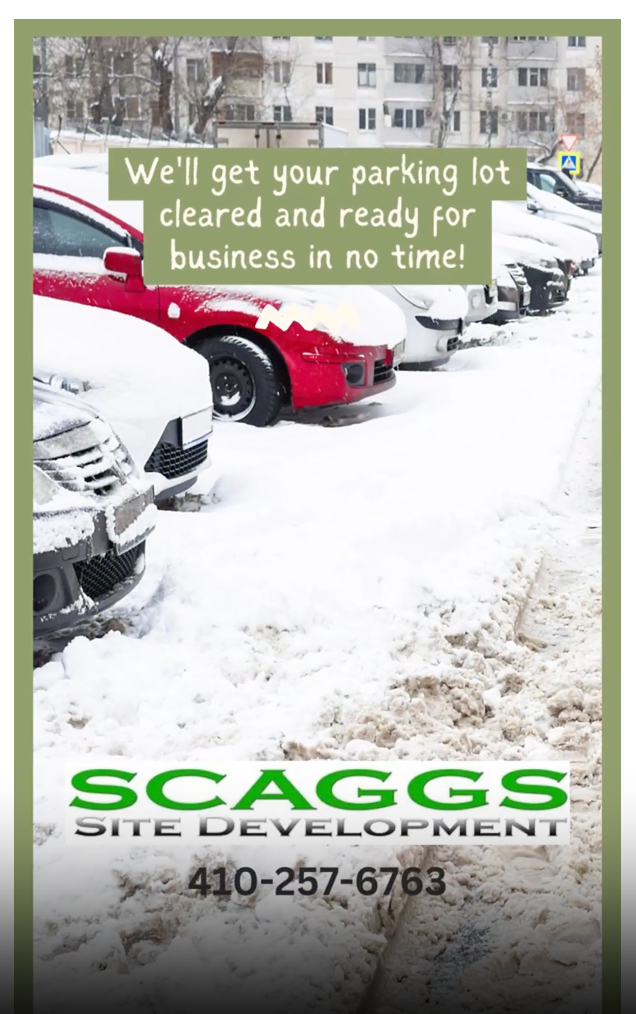Maryland Snowy road excavation
Salts as a Means of Clearing Snows on Highways:
The Pros and Cons of the Substance
Scaggs Excavating Company clears Maryland highways to make them safe for you.
Salt is widely used because of cost, climate, and chemistry. For instance, considering that snow usually falls in the United States when the temperature range is between 25◦F and 32◦F, it is seen as the ideal option because sodium chloride is capable of melting ice or snow until the temperature reduces to minus 6 degrees. At this level, even the salt will freeze, as seen in areas such as Canada, Alaska, and the Upper Midwest, where the temperatures can drop to subzero levels. Highway
crews in such regions often abandon salt for other alternatives as the weather will be frigid for salt to be useful. Consequently, they have to plow repeatedly to free the road of moisture. In cases where the accumulation of snow is extreme, the highway team will resort to spreading sand and crushed stones – although this method will not melt the ice, it will increase the road traction. According to Bruce Beltram, a specialist from the Salt Institute, using the salt is inadvisable once the temperature reaches zero or less down zero. In such a condition, it is better just to ensure that the road remains as clear as possible.
Aside from temperature, the size of snow on the road also determines the effectiveness of the salt. Using salt for accumulated snow of more than three inches will be ineffective because the snow is too deep for the salt to penetrate, according to a spokeswoman for the State Highway Administration, Sandra Dobson. She added that Maryland highway crews had to stop salting and plowing when the height of the recent storm became severe, and the snow was falling so fast. However, after sometimes, the crew was able to apply salt in many significant arteries in the Baltimore region after clearing up a sufficient amount of the salt.
How the salt works is no rocket science; it is pure chemistry. Once the salt is applied to the snow, it will penetrate, then absorb the moisture from the snow. As the sodium chloride combines with the snow and ice, it will absorb the water to form a brine (a solution of sodium chloride), which has a lower freezing temperature compared to the snow. As a result, the snow close to the brine will melt, and eventually, the snow will convert into a salty solution, which is less dangerous compared to the snow on the road.
Chemically, salt is made of two elements, which are sodium and chloride. When the temperature drops down to less down 6 degrees (a level in which salt becomes ineffective), highway crews often resort to the use of liquid treatments such as salt brine. Also, an alternative form of salt, such as calcium chloride having minus 58 degrees freezing temperature, can also be used.
However, some other options have been considered as more effective and less dangerous to the environment during cold weather. For instance, an organic compound containing molasses has been produced by a salt company based in Minnesota called Cargill Salt. Cities such as Minneapolis, Rochester, and even Baltimore have bought the product from Cargill salt. According to a sales representative of the brand in Plymouth, the product doesn’t scatter or bounce. Also, the State Highway Administration applies Ice Ban M-50 during the chilliest storms in Garett County. The agricultural byproduct possesses minus 36 degrees freezing point.
Aside from the fact that the alternative salts and corresponding treatments are way expensive, they fail sometimes. Dobson revealed that for many years, Maryland has always use magnesium chloride to pretreat forecasted snowstorms. Once the chemical is spread on the road, it won’t allow the ice and snow to bond with the road. However, the treatment was suspended by the State Highway Administration recently when the state officials realized that the chemical often causes slippery conditions on the road, as seen in the Montgomery and Prince George’s counties. She added that the SHA is looking into the problem.
Most highway crews have disclosed that salt is still the most effective and cheapest weapon for tackling snows on the highway. According to Rodney Wynne, a research manager for Maryland State Highway Administration, salt remains as the most effective product in the market.
However, salt has its lapses too. Once the salt combines with snow to form brine, it will seep into the tiny cracks on a concrete surface, then expand as it freezes. Consequently, it will leave larger cracks within the pavement. More so, once the steel is corroded by salt, the resulting rust will occupy four times the volume of the steel, which it will replace. Without proper maintenance, it can result in breaking up the concrete in which the steel is used as reinforcement.
Some specialists suggest that removing the slush created by the salt and the melting snow instantly from the roadway or sidewalk is crucial towards preventing cracks. Nevertheless, salt also has a long-term impact. Richard Forman, a professor of landscape ecology (Harvard University), revealed that salt is not disappearing from waterways; instead, it is accumulating in our surroundings. He added that although no comprehensive research has been done on the effect of salt on the environment, some scientists opine that sodium chloride could affect fish and algae, which lives in the stream and ponds close to salted highways. Also, according to a report released on December 1 by Environment Canada, there was a need for a comprehensive plan on salt management as it was causing serious harm to the groundwater, plants, and wildlife.
Conclusion
Evidently, salt seems to have its environmental concerns when applied for clearing out the snows from the highways, concretes, and pavements. However, it is still the most effective and cheapest means of tackling the situation.
After Reading This Excavation Article Others Read:


